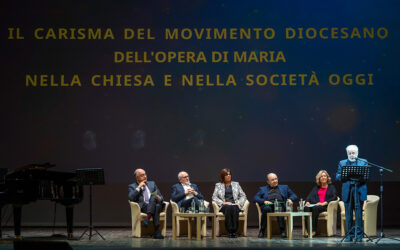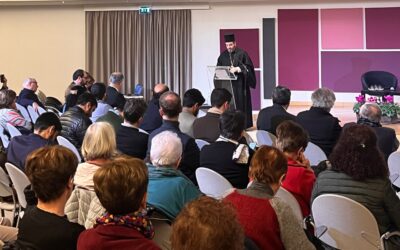The meeting entitled “Co –governance – mutual responsibility in cities today” has ended with a written proposal to citizens and public administrators to both engage in and to create networks drawing together citizens, social partners and cities. “Politics is the love of loves that brings together the richness of people and groups in the unity of a shared project, allowing everyone to fulfil their vocation freely”(1). These challenging words of Chiara Lubich, founder of the Focolare, resounded at the end of the “Co-Governance, co-responsibility in the cities today”, conference dedicated to participatory governance of cities promoted by the New Humanity Movement, the Movement for Politics and Policy for Unity and the Association of Cities for Fraternity, all outworkings of the social and political engagement of the Focolare. It was the first event of its kind that in two years time will be replicated in Brazil. Over 400 public administrators, politicians, business people, academics and citizens from 33 countries participated in the event. The focus of the event was participation, presented in the many forms it can take and illustrated through stories and good practice shared by over 60 experts in the fields of town planning, communications, services, economics, politics and the environment.  “We are convinced that participation is a strategic choice, the best way to live well within cities – explained Lucia Fronza Crepaz, a former member of the Italian parliament and educator at the “School for Social Engagement” in Trent and member of the central committee of the event. “Participation is not seen as replacing procedures enabling representation, but is chosen as an effective way of addressing complex problems and thus strengthening the concept of democratic delegation”. The outcome of the event was the approval and signing of the “Pact for a new Governance” with which the participants committed themselves to engaging the interest of their own communities and public administrations. The 400 signatories to the pact committed themselves to form three networks to bring diversity together and respond to the complexity of reality. They are networks of citizens: “People who live in the city while having different roles and tasks, but inspired by the same sense of responsibility”; networks of people working in particular sectors, forming groups in professional and economic spheres, the voluntary sector, faith communities, academia and universities, communications, etc.”; networks among cities themselves: “… that aim to engage citizens actively and collaboratively first by creating platforms that are accessible to all and easy to use. They will cooperate by overcoming particular interests and prejudices that undermine trust, which is an indispensable foundation for building a network.
“We are convinced that participation is a strategic choice, the best way to live well within cities – explained Lucia Fronza Crepaz, a former member of the Italian parliament and educator at the “School for Social Engagement” in Trent and member of the central committee of the event. “Participation is not seen as replacing procedures enabling representation, but is chosen as an effective way of addressing complex problems and thus strengthening the concept of democratic delegation”. The outcome of the event was the approval and signing of the “Pact for a new Governance” with which the participants committed themselves to engaging the interest of their own communities and public administrations. The 400 signatories to the pact committed themselves to form three networks to bring diversity together and respond to the complexity of reality. They are networks of citizens: “People who live in the city while having different roles and tasks, but inspired by the same sense of responsibility”; networks of people working in particular sectors, forming groups in professional and economic spheres, the voluntary sector, faith communities, academia and universities, communications, etc.”; networks among cities themselves: “… that aim to engage citizens actively and collaboratively first by creating platforms that are accessible to all and easy to use. They will cooperate by overcoming particular interests and prejudices that undermine trust, which is an indispensable foundation for building a network.
Stefania Tanesini
1) Info and texts of the conference: www.co-governance.org




0 Comments